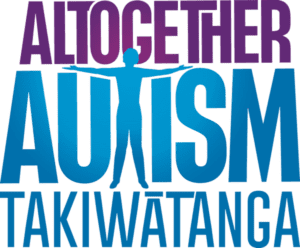
24 January 2018 – The move to secondary school can be challenging, even for children who may have previously thrived at primary school.
Mark Shanks has 20 years’ of experience working directly and indirectly in special education both as a teacher and as an itinerant professional. He recently headed a project with Life Unlimited (now known as Your Way | Kia Roha) that aims to improve the transition process for young people with disabilities as they move from secondary school into adult life.
Mark says he is big on making plans that engage all the people in a teen’s life. “I’m passionate about supporting young people with a disability to achieve their full potential. This support entails active and constructive conversations with the young person, their families, teachers, school and other key people – it’s a collaborative planning process to achieve the best outcomes.”
Here are his tips on how to support your teen through secondary school.
- Create a teen-centred plan that outlines how home and school will work together. The plan should be strengths-based and cover academic and social goals. Monitor it regularly and sort it quickly if problems arise.
- Develop a strong professional relationship with the head teacher and your child’s teacher aide – give them all the information they need to ‘know’ your child.
- Communication Passports or photographic examples of things like actions, behaviours or facial expressions can be invaluable if your child is non-verbal or struggles with communication. Learn more and create a communication passport for your child.
- Special Education has a responsibility to support your child’s education. Get to know the Special Education advisor, Special Education needs coordinator and resource teacher: Learning and Behaviour for your school. Make them accountable for additional support. Visit the Special Education portal at the Ministry of Education for more information.
- Ensure as much mainstreaming as possible takes place.
- Ask for an able-buddy support system. If not, why not?
- Attend any professional development opportunities with teacher aides.
- Education should also focus on and prioritise social and emotional skill development.
- Get together with your child’s friends and their parents. Build your own social network.
- A great deal of learning takes place outside the school. Encourage field trips, school camps, work experience, community activities, and visiting tertiary institutions. Ensure trip planning takes your child’s needs into account – the provision of accessibility and support should not be barriers to inclusion.
- Your child has a right to access the guidance counsellor, careers advisor, Gateway and Secondary Tertiary Alignment Resource (STAR) programmes so they can plan for their future beyond secondary school. The Tertiary Education Commission funds the Gateway programme and enables schools to provide senior students with the opportunity to learn in a workplace environment. The STAR programme enables schools to partner with tertiary education providers and employers to provide vocational education.
An Individual Education Plan is essential
- Ensure your child has a plan (eligibility may be dependent upon level of need).
- Attend all plan meetings. You can determine the frequency – once every term is productive.
- Ensure plan goals are prioritised, realistic, achievable and monitored.
- What skill development happens at school should also happen at home and vice-versa.
- If a goal is not achieved find out why and either solve the issue or recalibrate the goal.
- Learn more about Individual Education Plans and Individual education plans at secondary school at the Ministry of Education’s Te Kete Ipurangi website.
- The plan should morph into an individual transition plan as soon as your child is settled into secondary school. A transition plan will map out your child’s path through the secondary years and beyond. Read more about the transition process.
Things not going well?
- Lobby the principal and the school Board of Trustees if you and your child are dissatisfied.
- If the teacher aide assigned does not work well with your child, ask for a change.
Secondary schooling alternatives
If school is not ‘growing’ the learning of your child, then you are not compelled to keep them there. However, what are the alternatives?
- Change school – visit other schools and check their special needs departments. The quality of teaching and support varies enormously from school to school.
- Home education – or home-schooling – is a big commitment. You will need to satisfy the Ministry of Education that you are able to provide the same supports your child would have at school. Consider a cooperative with other like-minded families, this will allow your child opportunities to socialise that they might otherwise miss. Learn more about home education from the Ministry of Education.
- Special schools are dedicated learning institutions for young people with a disability. They have their own professional support team (such as occupational therapists, psychologists and behavioural support) which means your child has access to these professionals on-site and can form ongoing relationships.
- Alternative education providers are often a choice for young people who are having behavioural issues at their mainstream school. Some do cater for students with a disability but they are generally not well qualified or experienced in this field. For information about alternative education providers in your area contact your local Ministry of Education office.
- Te Aho o Te Kura Pounamu (Correspondence School) provides distance education. There are a number of gateways to access Te Kura that may apply to a student with the following needs: learning, high health, special circumstances and special development.
Beyond secondary school
Schooling in New Zealand is compulsory for children aged 6-16 years. Once your child turns 16, you both might want to explore options beyond secondary school if you feel it’s not providing your child with the opportunities they need.
- The Youth Guarantee provides a range of initiatives to help young people move on to further study, work or training after secondary school.
- Tertiary options are worth investigating but may not be available until your child turns 18. Tertiary education serves a valuable social function as your child moves on with his/her peers. Some institutions offer courses specifically for those with supported learning needs but look at all course options.
- Enter the workforce on a full-time, part-time, casual, or voluntary basis. Planning should have been underway for some time, and the skills developed and contacts made, usually within the family/friend network, but scope all possible opportunities.
- A supported employment and/or vocational skills provider may offer good opportunities to learn new skills and gain employment, but be careful not to get stuck there. Set the goal and achieve it by making providers accountable – and then set a fresh goal!
- Read our information section on work and study.





